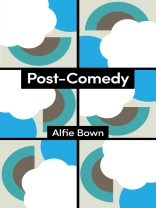Not so long ago, comedy and laughter were a shared experience of relief, as Freud famously argued. At their best, ribbing, roasting, piss-taking and insulting were the foundation of a kind of universal culture from which friendship, camaraderie and solidarity could emerge.
Now, comedy is characterized by edgy humour and misplaced jokes that provoke personal and social anxiety, causing divisive cultural warfare in the media and among people. Our comedy is fraught with tension like never before, and so too is our social life. We often hear the claim that no one can take a joke anymore. But what if we really can’t take jokes anymore?
This book argues that the spirit of comedy is the first step in the building of society, but that it has been lost in the era of divisive identity politics. Comedy flares up debates about censorship and cancellation, keeping us divided from one other. This goes against the true universalist spirit of comedy, which is becoming a thing of the past and must be recovered.
Inhoudsopgave
Introduction: The Tension of Comedy
A Reactionary and a Liberal walk into a bar…
The Ideology of Laughing Freely
Didactic or Retroactive Laughter
The Form of Jokes
Despicable Jokes and the Ideology of Exception
Anxiety and Laughter
Sneezing Corpses
Satire and Satiation from Brexit to Trump ‘24
Memes and Group Psychology
Keks and LOLs: Playground Humour
Milk Pouring and Trolling: Perverse, Psychotic, Neurotic
Activist or Fetishist
Dancing Laughter and Clowns from St Vitus to Tik Tok
Conclusion: Jokes, Masters and Orgasms
Over de auteur
Alfie Bown is Lecturer in Digital Media Culture and Technology at Royal Holloway, University of London.












